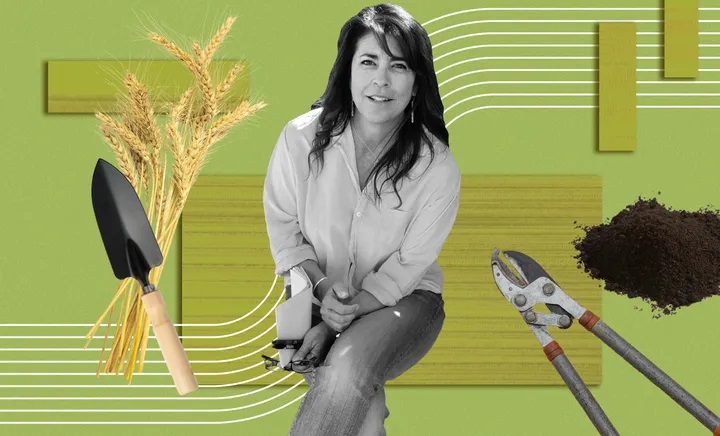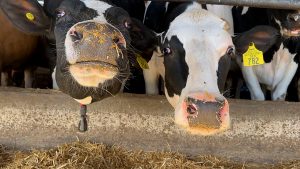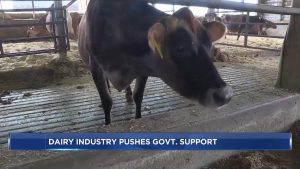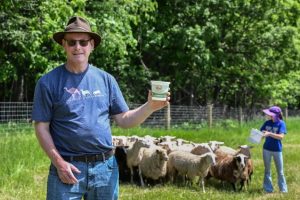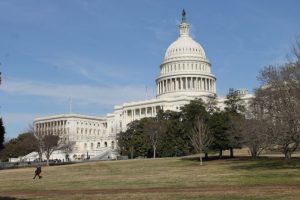
Stefanie Smallhouse, the state president of Arizona Farm Bureau, explains why it’s crucial to consider farmers when you vote, especially if you care about inflation.
Stefanie Smallhouse is the state president of the Arizona Farm Bureau, an affiliate of American Farm Bureau, which is an independent, nonpartisan grassroots organization serving as the national voice of agriculture. If you don’t work in agriculture or food production, it can be easy to take the foods that fill grocery stores and restaurants for granted. But as Smallhouse explains here in this Voices In Food story, issues that impact farmers impact everyone. Here’s what she wants voters to know as we get closer to Election Day.
I married into a ranching family. My husband is a fifth-generation farmer and rancher, and we’re raising the sixth generation together. Working on the ranch that my husband grew up on, that his great-great-grandfather established and that our kids will one day take over, is very special. It’s not just a business. It’s our family legacy.
All farmers and ranchers are deeply connected in this way. This isn’t just a job you clock in and out of. Less than 2% of the U.S. population grows the food, fiber and fuel for the entire country and also elsewhere in the world. As the state president of the Arizona Farm Bureau, I spend a great deal of time listening to the needs and issues impacting the people responsible for our country’s food supply system.
“Please do not assume that just because your milk or yogurt may cost 15% more than it used to, this means dairy farmers are making 15% more.”
I listen to the challenges they’re facing and then, through Farm Bureau, learn about how these issues may or may not be affecting food producers in other states. Not all farmers have the same challenges or have the same needs, so it’s important to know the broader picture and find solutions that help all farmers, which isn’t easy. For example, ranchers in Arizona have had issues in the past accessing a drought relief program and that’s because the program was created for farmers who live in other areas outside the desert Southwest. Farm Bureau leaders have to put our heads together to find solutions that have regional solutions and aren’t one-size-fits-all.
Farmers’ issues are everyone’s issues.
An incredibly small percentage of our population is responsible for our food and when farmers’ needs aren’t met, it’s difficult to retain them. For example, right now there are a lot of farmers who can’t afford to stay in business because of inflation, including the rising costs of what it takes to be a dairy farmer.
Please do not assume that just because your milk or yogurt may cost 15% more than it used to, this means dairy farmers are making 15% more. Dairy farmers are operating within very slim margins. The cost of producing milk has increased and the prices for dairy products have not risen enough to match them. This is one example of how inflation affects everyone, including farmers. Food is more expensive because it’s costing more to produce it, and many farmers are still struggling to stay in business. For this reason, it’s important to pay attention to what politicians are saying they will do about inflation.
One of the biggest issues impacting farmers as we move into the election is the Farm Bill. The Farm Bill gets passed every five years. The last one was passed in 2018, and there has already been an extension on it, so an updated Farm Bill hasn’t been passed yet. Why is the Farm Bill important, and why is it important that it’s updated? The Farm Bill is meant to be a living document that includes an extensive package of programs to help rural America and America’s farmers and ranchers. What many people don’t realize is that 80% of the Farm Bill addresses food security for Americans, such as the SNAP program. The other 20% is about farming.
The farming side of the Farm Bill is kind of like America’s insurance policy, making sure we have a sustainable farming and ranching system. There’s an immense amount of risk involved in farming and ranching, so it’s important to have insurance policies in place to mitigate these risks. A lot of parts of the Farm Bill are about to expire, so many farmers and ranchers are depending on an updated Farm Bill to get passed during this legislative season.
You can now read the most important #news on #eDairyNews #Whatsapp channels!!!
🇺🇸 eDairy News INGLÊS: https://whatsapp.com/channel/0029VaKsjzGDTkJyIN6hcP1K
